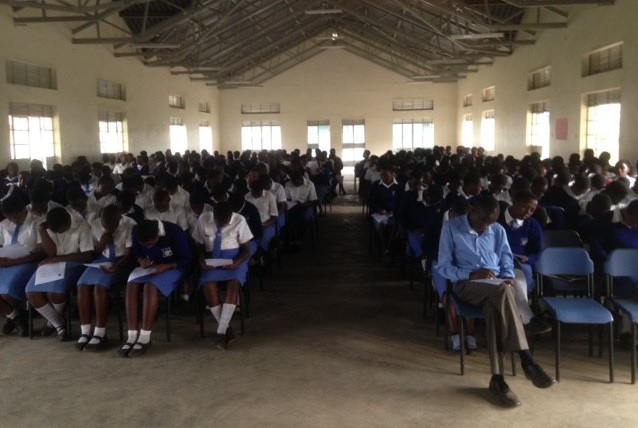James Walker is studying for an MSc in Environmental Management at the University of the West of England, and received an IWSN Scholarship to support his studies. His trip to Uganda, also funded by IWSN, will involve researching attitudes to the Urine-tricity technology created by the Bristol Robotics Laboratory, which is being trialled at a school in Kisoro.

By the time I arrived in Kisoro, Uganda on 15 July, the engineering and biology team from UWE had nearly finished their work. Pee Power technology (where urine generates electricity) was being installed at Seseme Girls’ School for its first trial outside of England. A pipe transfers urine from two latrines to a block, built by local tradesmen, that houses the microbial fuel cell stack, where energy is harvested from the organic matter in the urine. This process treats the urine for pathogens, and is then released through a soakaway. A few days later, both the construction and the electrical work were complete. LED lights were fitted in each cubicle and outside the latrine block to provide continuous lighting at night, with the aim of making the latrines safer for the girls to use.
The initial results far exceeded everyone’s expectations. The lights, powered by urine, could be seen from our guesthouse a few kilometres away and provided light where before there was none. We saw some girls using the light outside the latrines to study.

My work focuses on the social acceptance of the technology. The aim is to explore what the girls like or do not like about it, and whether it makes them feel safer. This research is being conducted through a baseline and post-installation questionnaire, focus groups, and observations in the school and around the town. The questionnaire was well received as each girl got to keep the pen used to complete it. The baseline results showed that the majority of the respondents did not think the school toilets (before the trial) were safe at night, do not think the toilets in their community are safe and explained that women have been attacked while using the toilet in their community.
I am very interested in what the results of the post-installation questionnaires will show.
